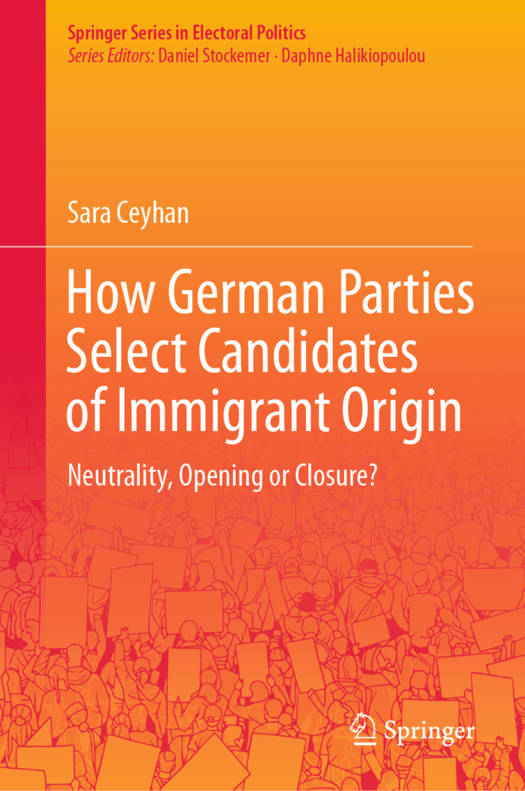
- Afhalen na 1 uur in een winkel met voorraad
- Gratis thuislevering in België vanaf € 30
- Ruim aanbod met 7 miljoen producten
- Afhalen na 1 uur in een winkel met voorraad
- Gratis thuislevering in België vanaf € 30
- Ruim aanbod met 7 miljoen producten
Zoeken
How German Parties Select Candidates of Immigrant Origin
Neutrality, Opening or Closure?
Sara Ceyhan
€ 198,45
+ 396 punten
Uitvoering
Omschrijving
This book analyzes the threshold candidates of immigrant background need to overcome to run for legislative office. Understanding whether political parties are able to adapt their selection criteria helps to assess their ability to respond to the underrepresentation of citizens of immigrant origin in parliament.
Although Germany's ethnic diversity is on a steady rise, citizens of immigrant origin remain descriptively underrepresented. Despite the pivotal role the intra-party candidate selection plays in shaping who runs for election, the question of how candidates of immigrant background fare in political parties' candidate selection in comparison to native-born candidates remained a blind spot of research. Therefore, the author presents in-depth empirical evidence on the selection of candidates of immigrant background in German political parties.
The book addresses scholars of political science interested in electoral studiesas well as policy-makers and party officials interested in a balanced representation of their political representatives.
Although Germany's ethnic diversity is on a steady rise, citizens of immigrant origin remain descriptively underrepresented. Despite the pivotal role the intra-party candidate selection plays in shaping who runs for election, the question of how candidates of immigrant background fare in political parties' candidate selection in comparison to native-born candidates remained a blind spot of research. Therefore, the author presents in-depth empirical evidence on the selection of candidates of immigrant background in German political parties.
The book addresses scholars of political science interested in electoral studiesas well as policy-makers and party officials interested in a balanced representation of their political representatives.
Specificaties
Betrokkenen
- Auteur(s):
- Uitgeverij:
Inhoud
- Aantal bladzijden:
- 255
- Taal:
- Engels
- Reeks:
Eigenschappen
- Productcode (EAN):
- 9783030594503
- Verschijningsdatum:
- 1/11/2020
- Uitvoering:
- Hardcover
- Formaat:
- Genaaid
- Afmetingen:
- 156 mm x 234 mm
- Gewicht:
- 557 g

Alleen bij Standaard Boekhandel
+ 396 punten op je klantenkaart van Standaard Boekhandel
Beoordelingen
We publiceren alleen reviews die voldoen aan de voorwaarden voor reviews. Bekijk onze voorwaarden voor reviews.







